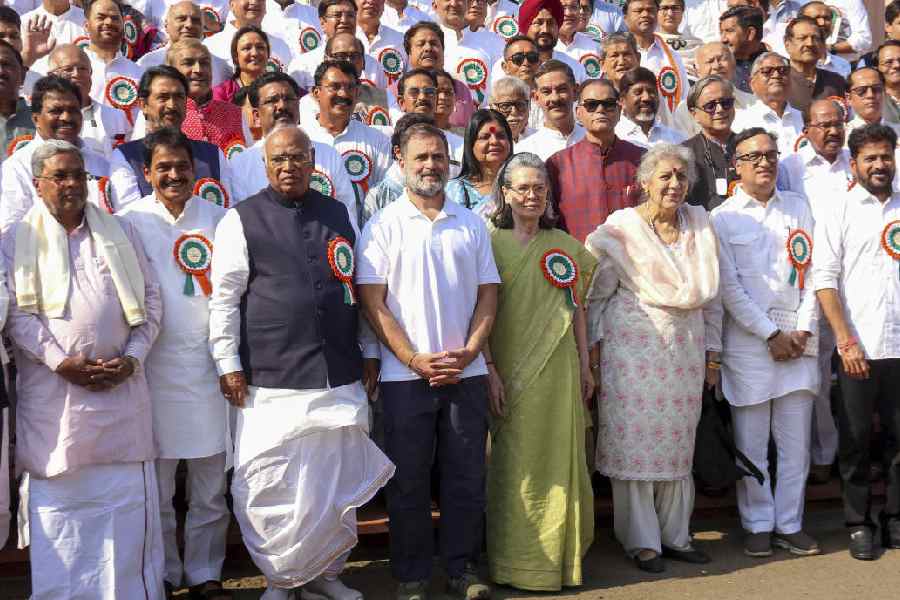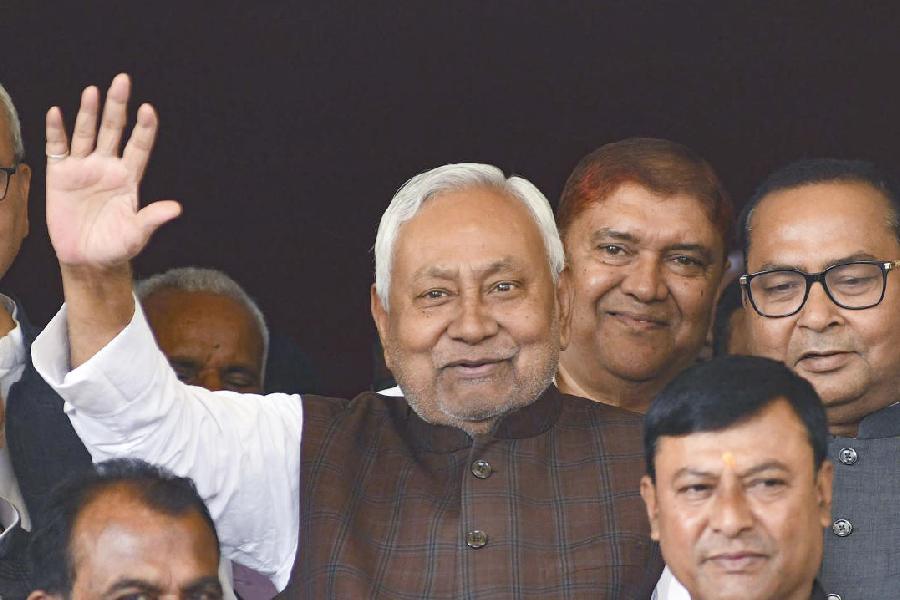The Congress has turned the clock back many decades to seek to reclaim Sardar Vallabhbhai Patel’s legacy, unmindful of the existential crisis the party is facing and the many ills it aims to rid the country of under the BJP.
The Congress on Tuesday likened the Modi government to British rule in India and sought to project its ideological battle with the saffron brigade as another freedom struggle while making its most forceful bid to reclaim Sardar Patel and place him as the party’s lodestar. Implicit in its attempt is a willy-nilly admission of its failure to even hold on to its icons in the face of a marauding BJP
The “Patel resolution” adopted at the extended Congress Working Committee on Day One of the All India Congress Committee session in Ahmedabad — the sixth in Gujarat in the party’s 140-year history — was by far the most detailed response to the BJP’s narrative on India’s first Deputy Prime Minister as a man slighted by the
Nehru-Gandhi dynasty.
Creating a triumvirate, the resolution portrays Patel as the inspiration for the “battle of ideologies” with the thought process of Mahatma Gandhi and Jawaharlal Nehru providing the foundation, and underscores that Patel was the architect of the fundamental rights that are being “undermined” by the Modi government.
Titled “Flagbearer of freedom movement — Our ‘Sardar’ — Sh Vallabhbhai Patel”, the resolution draws parallels between his work against the British and post-Independence with the struggles the party has associated with in the past decade, beginning with farmers since the “iron man” began his political work by leading farmers in Kheda and then the Bardoli Satyagrah.
“The BJP government of today emulates the cruel British policies against the farmers — be it bringing an ordinance to whittle down ‘The Right to Fair Compensation Law’ for acquisition of land, the three anti-agriculture ‘black laws’ to enslave farmers, blocking the path of farmers by digging up roads”.
Referring to the British capture of power with “one-sided agreements and compromises with erstwhile rulers of princely states”, the resolution likened this to the BJP’s bid to “fragment India’s united spirit by creating artificial splits of regionalism, orchestrating divisions of North Vs South… wily segregation based on language
and culture”.
On fundamental rights, the resolution points out that Patel was the Congress president at the Karachi Session of the party in 1931 during which the AICC “transcribed the
principle of non-discrimination on the grounds of religion, caste or sex that shaped the present day constitutional guarantee of fundamental rights”.
Referring to Patel’s belief in equitable distribution of resources and a level playing field for all producers, the resolution underscores the concentration of wealth in a few hands on the BJP’s watch to contest the saffron party’s claim to be the true followers of his legacy.










